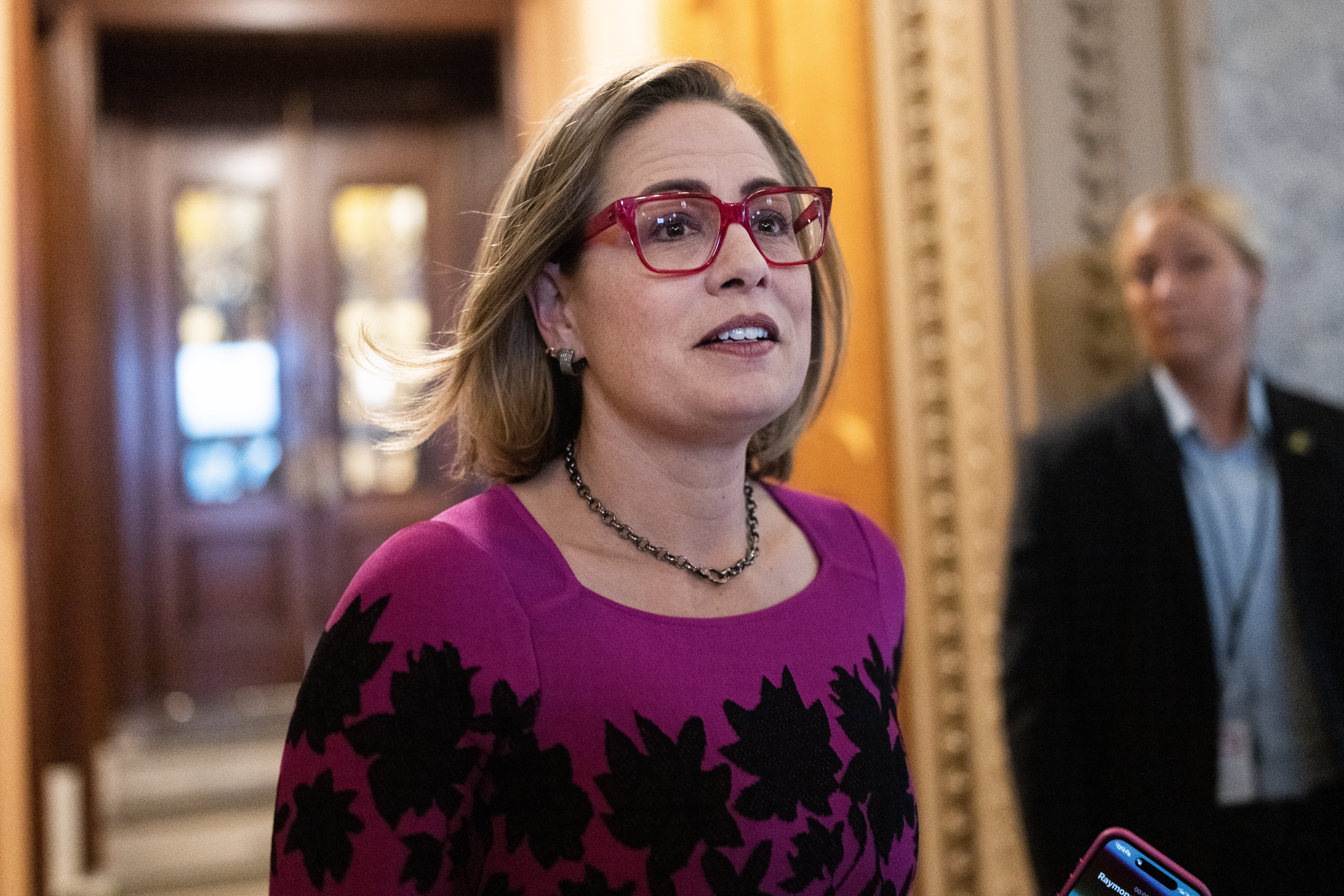Sen. Kyrsten Sinema’s fundraising for her Arizona reelection campaign slowed to its lowest level in years in the final three months of 2023, a sign the independent candidate may not be preparing to meet a potentially insurmountable deadline to gather tens of thousands of signatures.
Sinema, a Democrat until 2022, raised just $595,000 in the last three months of 2023, according to a freshly filed report with the Federal Election Commission. It’s the lowest total she’s raised since the last quarter of 2020 and less than half of what she raised each quarter of 2021, when she played a starring role in shrinking the legislative ambitions of President Joe Biden.
The report also revealed Sinema had spent no money on signature-gathering through the end of 2023. To qualify for the ballot as an independent, she needs to get 42,303 valid signatures by April 8, according to Arizona’s secretary of state office ― a task Arizona Democrats think only gets harder by the day.
“If she is running, I’m struggling to see why she isn’t in yet,” said Jon Sutton, who worked as the field director for the Arizona Democratic Party when Sinema ran for Senate in 2018. “She’s just making this harder and more expensive for herself, spending money she doesn’t really have.”
It adds up to an emerging consensus across both political parties: A typical politician would not run for reelection. There’s also an acknowledgment, however, that Sinema ― who evolved from a Green Party candidate to a Wall Street-friendly centrist ― is far from a typical politician.
If Sinema does not run, it would remove a major political headache for Democrats heading into the 2024 Senate elections. National Democrats remain torn between Rep. Ruben Gallego (D-Ariz.), who has the clear backing of in-state Democrats, and Sinema, who officially left the party in December 2022 but effectively caucuses with Democrats in the Senate and provides key votes for judicial nominees and other party priorities.
If she does qualify for the ballot, Sinema would be in a three-way race with Gallego and former newscaster Kari Lake, a Republican. Polls have shown a tight race between Gallego and Lake, with Sinema trailing well behind. Democrats need to win the seat to have any hope of retaining control of the Senate after the 2024 elections.

Talking with reporters Wednesday on Capitol Hill, Sinema scolded a reporter for asking a question about her fundraising instead of asking about a border security deal she has played a lead role in negotiating. The deal, which looks likely to falter if Republicans bow to criticism from former President Donald Trump, could serve as a crowning achievement for Sinema, who has also helped negotiate bipartisan deals on infrastructure and gun control during her single term in the Senate.
“Not talking about that at all,” said Sinema, who rarely speaks to reporters on Capitol Hill. “Why are you wasting your question on that? I want to be clear to all of you: total waste of a question. I’m here to talk about substance.”
In a statement, Sinema’s campaign similarly suggested she was not focused on her reelection bid and pointed to the $10.5 million remaining in her campaign account.
“Kyrsten remains laser focused on continuing her work making a meaningful impact in the lives of Arizonans across the state ― not on campaign politics,” a spokesperson said. “She has the resources to keep delivering lasting results for Arizona.”
Sinema’s allies pointed to her work on the immigration deal (negotiations began in earnest in November) as a reason she was not focused much on fundraising in the fourth quarter.
There is another theoretical way for Sinema to reach the ballot: She could use the ballot line of No Labels, a bipartisan group that is considering running a third-party presidential candidate in 2024. The group has qualified for the ballot in Arizona but has also indicated it does not plan to support candidates for offices other than president.
Despite her low fundraising total over the last three months, Sinema’s cash on hand remains higher than either of her opponents. Gallego has $6.5 million on hand after bringing in $3.2 million, according to FEC filings, while Lake raised $2 million and has $1 million on hand.
Sutton estimated Sinema would need to spend between $500,000 and $1 million on ballot access if she pressed the start button on her campaign today. As the April 8 deadline approaches, those totals will go up ― she’ll need to pay for more staff or potentially fly in trained staff from other states and put them up in hotels ― and the costs will become prohibitively expensive.
“It becomes death by a thousand cuts at a certain point,” Sutton said of the costs. “The costs can swell and swell, and that swell can become exponential.”
Disclaimer: The copyright of this article belongs to the original author. Reposting this article is solely for the purpose of information dissemination and does not constitute any investment advice. If there is any infringement, please contact us immediately. We will make corrections or deletions as necessary. Thank you.
